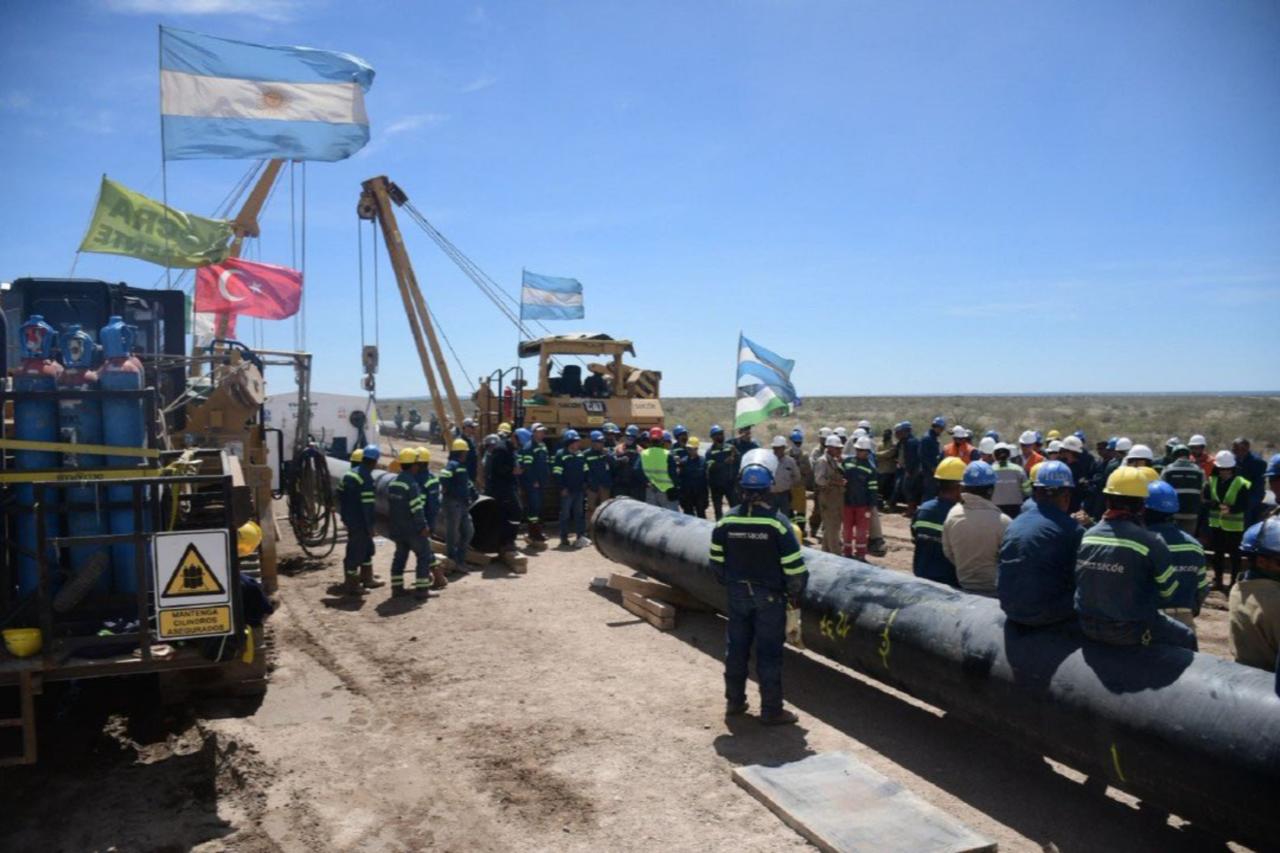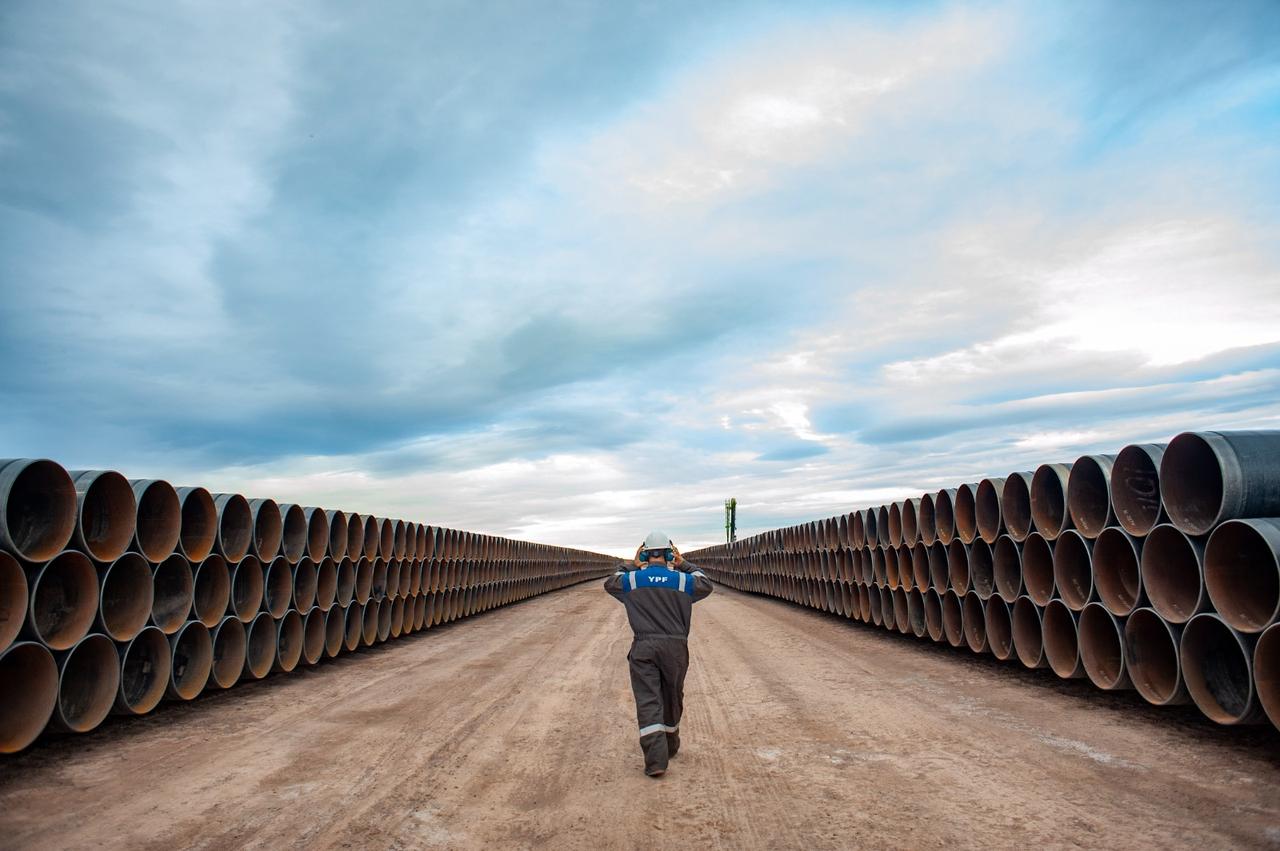
The near-completion of the Vaca Muerta Oil Sur (VMOS) pipeline marks one of the most consequential milestones in Argentina’s energy infrastructure in the last half-century. Designed to directly connect the Vaca Muerta shale formation to the Atlantic coast of Rio Negro, the 437-kilometer (271.54-mile) pipeline is expected to propel the country into a new era of export capacity, potentially generating up to $15 billion annually once full operations begin in December 2026.
While Argentina has recently reached record oil production levels, the success of VMOS and previous expansions hinges on a lesser-known but critical group: a small cadre of highly specialized Turkish welders.
For years, they have handled the automatic welding machines essential to large-scale pipeline construction, equipment operated globally by only two groups of workers: Turks and Filipinos.
Upon Argentina’s choice, Turkish contribution has become a common denominator across Argentina’s most ambitious energy projects.
This Turkish team first arrived in 2022 during the construction of the President Nestor Kirchner Gas Pipeline (GPNK), a strategic project meant to reshape Argentina’s natural gas distribution. Their expertise in automatic welding systems quickly became indispensable.
Many of them, including the widely respected supervisor Iskender Ucmaz, have since worked across multiple national projects, from the GPNK to the Northern Gas Pipeline Reversion and now VMOS.
These welders are employed by BTC and operate in coordination with the Techint-Sacde consortium, which leads the VMOS development. The consortium notes that these teams adapt seamlessly to local work environments, often integrating quickly and collaborating effectively with Argentine crews.
Parallel to their work, local welders are being trained by Turkish technicians to operate similar machinery in future projects, contributing to their host countries’ effort as well.
Among the welders is Iskender Ucmaz, a supervisor who has worked on Argentina’s major energy projects since 2022. His trajectory reflects the broader experience of the group. After arriving for the President Nestor Kirchner Gas Pipeline, he worked on the Northern Gas Pipeline Reversion in Córdoba before joining the VMOS construction.
He often describes his bond with Argentina—its food, football culture, and everyday life—with characteristic humility and broken but clear Spanish. After three years in the country, he speaks of feeling “almost Argentine.”
Iskender leads a team of 23 Turkish welders from the company BTC, working alongside more than 2,100 others on the VMOS project.

The VMOS project has seen unprecedented progress—moving at twice the pace of previous works, particularly compared to the Néstor Kirchner pipeline. The Turkish-led teams have played a central role in this acceleration.
In a single day, these welders achieved a Latin American record of 175 completed welds, with a consistent daily average of around 140. For context, during the GPNK project, daily outputs averaged between 60 and 70.
The construction consortium attributes these results to a combination of refined logistics, long-term team cohesion, and a deep familiarity with the automated welding system accrued since 2022.
Achieving high-quality welds at this pace requires meeting strict technical parameters. Too rapid a process risks compromising the integrity of the pipeline.
The teams’ ability to maintain both speed and precision highlights their importance in meeting deadlines for one of the largest infrastructure undertakings in Argentina’s recent history.
The Turkish welders’ daily realities reflect the intensity of major industrial projects. Most workers in VMOS follow a 28-day-on, seven-day-off schedule.
The Turkish team, however, applies a rotation of six consecutive workdays followed by one rest day—typically spent in the coastal city of Las Grutas, about 150 kilometers from their camp.
Their work is part of a global circuit of pipeline construction, with many having traveled through multiple countries for similar assignments. Yet Argentina stands out to them for its strong union presence, which shapes labor dynamics and distinguishes the environment from other markets.
Despite long shifts and demanding work, many of the Turkish welders have grown attached to life in Argentina. They speak of appreciating the local culture, customs and the famed asado.
Some have even adopted local teams, River Plate among them being a favorite, and express interest in returning for future energy projects.
Beyond technical prowess, these workers have formed a visible and unexpected connection with Argentina’s communities and workplace culture, showing up on Argentine media and social media recently.
People wondered why there was a Turkish flag in Vaca Muerta, and those who listened to them appreciated their contributions to the country.